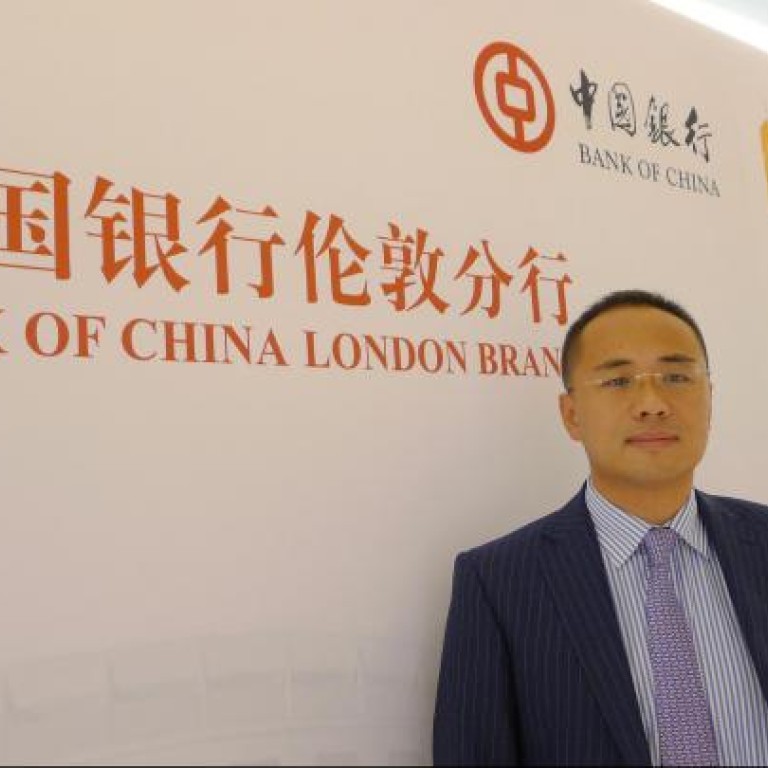
Bank of China to expand yuan business in UK
As interest builds in London's plan to be an offshore yuan hub, bank official says a more active market will also benefit HK
Bank of China plans to expand its yuan business in London as the city embarks on an ambitious plan to establish itself as the West's major centre for trade of offshore yuan.
"Yuan business is definitely a hot topic here in London, since the British government and the City of London are both keen to develop London as a Western hub for offshore yuan business," said Wang Huabin, chief corporate banking officer of Bank of China (UK).
In an exclusive interview with the at the bank's London branch next to the Bank of England, Wang said many customers including both Chinese and Western companies that have trade relationships with Chinese companies made frequent inquiries about the availability of yuan services.
"We have not a seen a lot of companies rush to use yuan to settle trades; but we have received a lot of inquiries as many corporate customers want to know more about the yuan services," Wang said.
China began allowing international companies and investors to use yuan to settle trade or investment flows in 2009.
Bank of China has more than 360 staff working in Britain, and offers customers a range of retail and wholesale banking services. It is the largest main- land bank operating in London, with a presence that dates back to 1929.
It offers yuan deposit accounts for retail investors and a range of yuan corporate banking services such as helping companies use yuan to pay their mainland trading partners, helping them arrange yuan finance- ing, and with the issue of so-called "dim sum" bond issuance - or bonds denominated in yuan.
Wang said multinational corporations were most interested in yuan-trade-related business at the moment as they were more familiar with using multiple currencies around the world.
"For many of London's small and medium-sized firms, Bank of China has not identified great demand because we don't have much involvement with such companies. But I believe in the long term they may also accept yuan to settle trade when the currency becomes more international," he said.
As the largest offshore US dollar market, and occupying a bridging time zone between Western market opening times and Asia market closing times, London enjoyed advantages over its rivals in the development of yuan services, Wang said.
"A more active yuan market in London would also benefit Hong Kong by increasing the depth of the whole offshore market," he said.
"Hong Kong and London complement each other in doing yuan business. Hong Kong has a wider pool of yuan funds and is closer to mainland China, while there are more international firms based in London that may need yuan services," he said.
The challenge to both cities, Wang said, was rather one of liquidity.
"BOC has the advantage of being a mainland bank. But other banks have an international client base and strong expertise in foreign exchange and capital market products," he said.

